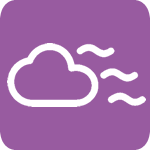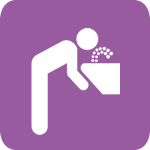About Xiamen
Formerly known as Amoy, Xiamen is a famous port city located on the southeast coast of China, across a strait from Chinese Taipei. It consists of a mainland territory and two major islands. Its naturally given, stunning coastal scenery has earned it the fame of ‘Garden City’ and ‘Oriental Hawaii’.
Nowadays Xiamen is an important regional center for finance and trade. It is also a cultural hub embracing both ancient and modern, oriental and western elements. Some 64 intangible cultural heritage items can be found in the city, adding to Gulangyu Island, the world heritage site accredited in 2017. Please click here for a list of attractions.
Visa Application
A passport valid for at least six months after intended period of travel is required to enter China. Currently, passport holders of a number of countries may enter China for a short period under the mutual visa exemption agreements. As of today, China has mutual visa exemption agreements with 14 countries. Under such agreements, holders of ordinary passports, other than diplomatic or service passports, are allowed to enter mainland China without visas. Participants from other countries may require a visa before departing to Mainland China. Please visit here or consult the Chinese Embassy in your country for more information.
Visa application can be made at the Chinese Embassy and Consulate. Please contact the nearest Chinese Embassy or Consulate in your country to check your entry requirements. Information of all the Chinese Embassies and Consulates is available from the website of Ministry of Foreign Affairs of People’s Republic of China.
You may need an invitation letter for visa application. After you have registered for the Congress, you can log into your registration account to generate a personalized invitation letter. After you have filled out all the necessary information, click ‘Submit’ to generate the letter and right-click ‘Print’ to make a printout. A hotel confirmation letter may be required as a supporting document for your visa application.
An invitation letter of duly authorized unit will be issued to invited speakers and paid delegates by the Chinese Medical Association upon request. Please send your request to registration@apaophth.org along with your payment confirmation email or faculty invitation. Information such as your passport number, gender, date of birth, nationality, etc. is required to generate a valid invitation letter of duly authorized unit.
Please note that the invitation letter of duly authorized unit is not a commitment on the part of the Asia-Pacific Academy of Ophthalmology to provide any financial support, nor does it guarantee abstract acceptance. The issuance of a visa is at the sole discretion of the Chinese Consulate. Neither the Asia-Pacific Academy of Ophthalmology nor the Chinese Medical Association guarantees successful visa application.
It may take several weeks to process your visa application. Please apply for an entry visa as early as possible.
Xiamen has a subtropical oceanic climate. The summer from July to September is warm with temperatures reaching 37°C (99°F), while winter is cool with average temperature around 11°C (52°F).
During early August, the time period when the conference is held, the average daily minimum temperature is around 26°C (78.8°F) and the average maximum temperature is 33°C (92°F). There are often a few rainy days so you are advised to bring your rain gear.
For more information on Xiamen’s weather/climate, please visit: https://www.timeanddate.com/weather/china/xiamen/ext
The international phone code of China is ‘86’ and the city code of Xiamen is ‘592’.
To make a domestic direct-dial call, callers need to dial the city code, and then the local number of the party you are calling. To make an international direct-dial call, dial international access number “00”, then the country code, then the city code (without the zero in the city code in the case of some countries), and finally the local number of the party you are calling.
Usually, local call can be made in hotels for free while the international call and the long distance call is charged according to the rate of the carrier. Besides, extra service fee will be charged.
Phone cards (local phone cards or international phone cards) are available in post offices inside hotels or on the streets. Even more conveniently, most newsstands also carry phone cards. A phone card holder is required to install a certain amount of money in the card. The charge of your call varies, based on different SIM cards. Telephone booths on the streets are mostly for local calls.
Internet access is available in most hotels and in some cafes around the city.
Tap water in China is not drinkable before it is boiled, but bottled water is readily available in hotels, supermarkets and convenience stores.
The standard electrical voltage in Mainland China is 220 volts and the frequency in use is 50 hertz. If you are from a country, like North America and Japan, that uses 110 voltage, you need to have converters for your electric devices while traveling in China. Most laptops have converters, while for small electric devices like hair dryer, electric shaver, you are advised to bring along with a converter or use a free adapter in the hotel.
A standard socket in China has two pins on the upper part and earthed three pins on the lower part (see photo). The top socket takes a ‘Type A’ two-prong plug while the bottom socket takes ‘Type I’ three-prong plug. You may buy a portable plug adaptor at travel-supply stores or electronics stores in your local countries or in China. Most of your hotels in China offer free use of plug adaptors.

Food in Xiamen is as enchanting and diverse due to its geographic location. As one subsidiary of Fujian food, Xiamen in the meantime holds a huge collection of cuisines from Chinese Taipei, Chaozhou, Shantou, Guangdong, Sichuan, Hunan, and Beijing. Some must-try dishes are fried seafood, famous Fujianese dish Buddha Jumps Over the Wall, Nanyang’s Shacha noodles, and Taiwanese oyster rolls.
In addition, Xiamen features over 200 varieties of local snacks and 3,000 snack stalls. Fish doughnut, peanut soup, oil-scallion cake, and many more specialties. So unique that they will surprise and delight even the most selective taste buds.
Have a glance here!
The primary language of Xiamen is the dialect of Hokkien, although Putonghua is also widely spoken as it is the official language of China. While most hotels in the country employ staff who are fluent in other foreign languages, visitors cannot count on communicating in English with people they meet outside of tourist facilities. But many people in China, especially young people, study English and welcome the opportunity to practice with foreigners. Don’t be afraid to ask for directions in English from people on the street. You will usually be rewarded with a polite and often heroic attempt to help.
It is advisable to have addresses or instructions written down in Chinese to show to taxi drivers. All major streets have signposts in Chinese pinyin (the Romanization system for Chinese characters), which make it easier to get around with the help of a map.
The Chinese currency is Renminbi (RMB), with yuan as the primary unit and jiao and fen as the subsidiary units. 1 yuan is equal to approximately USD 0.16. Yuan, jiao and fen are issued both in bills and coins. The Renminbi features the following denominations: 1, 2, 5, 10, 20, 50, and 100 yuan; 1, 2 and 5 jiao; and 1, 2 and 5 fen.
There is no limit on the amount of foreign currency and foreign exchange bills that can be brought into China by tourists, but the amount must be declared to the customs if non-residential passengers carry more than USD 5,000 or an equivalent amount of other foreign currency. No foreign currency is allowed to circulate in China. Travelers may exchange foreign currency cash in renowned banks (like Bank of China), major airports and hotels (hotels may only exchange money for their guests) at the published exchange rates. You will need your passport for the exchange service. You also might want to keep your money exchange receipts if you plan on changing any of your remaining RMB back to your local currency as you need to declare to the customs if you carry more than RMB 20,000 (approximately USD 3,207) into or out of China.
All foreign-oriented hotels and large shopping malls in Xiamen accept internationally popular credit cards such as VISA and MasterCard. ATMs that accept foreign credit or debit cards are common in shopping malls and tourist areas, but withdrawal is available in Chinese currency only and services may incur a commission charge. Consult with your bank before departing to make sure that your brand of credit card will be accepted.
You can click here to check the exchange rate.
Xiamen is a relatively safe destination. Avoid carrying large amount of cash and lock valuables in the hotel room safe as staying in other big cities.
In emergency situations, you can contact the local police, ambulance service, fire department and other emergency services by calling 110.
China is covered by one time zone that is Greenwich Meantime (GMT) plus eight (8) hours, which is 13 hours ahead of New York. The country does not observe daylight saving time.
Tipping is not generally practiced in China and discouraged by the authorities. Even in many hotels and restaurants (some restaurants may include a service charge on the bill), staff are not allowed by the management to take tips. Exceptions are tour guides and drivers who are with you all day, bell boys who are very helpful at hotels, and restaurant waiters or waitresses whose service makes you feel flattered. In most cases, you could show your gratitude by leaving 10 or 20 yuan.
Bargaining does not work in most department stores, shopping malls and gift shops in hotels, but is broadly acceptable in open-air markets, antique markets, street vendors and other privately-owned shops that sell garments, souvenirs and handicrafts.
————-
Please click here for more travel tips.












